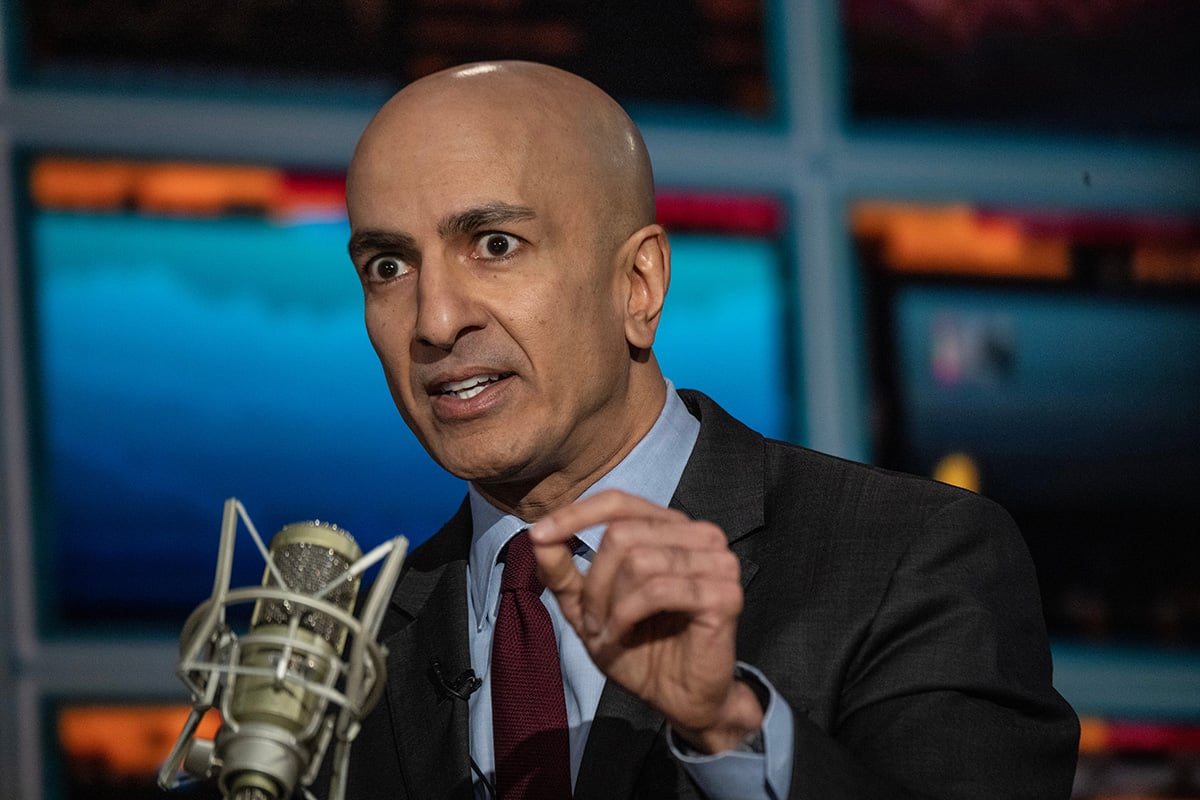Alaska Sen. Lisa Murkowski's decision to agree to smashObamacare's individual mandate may remove one obstacle to passingthe Senate Republican tax bill next week.
|“I believe that the federal government should not force anyoneto buy something they do not wish to buy in order to avoid beingtaxed,” she wrote in an op-ed in Alaska's Daily News-Minernewspaper posted online Tuesday.
|Murkowski didn't mention the tax bill in the article. But shepreviously said she preferred not to mix it with health care, andshe was one of three mavericks who killed the GOP's Obamacarerepeal efforts earlier this year.
|Her announcement came after she said last week that Congressshould act to stabilize health-insurance markets in conjunctionwith eliminating the individual mandate—a requirement thatindividuals get health insurance or pay a federal penalty—in thetax legislation. In the op-ed, Murkowski reiterated her support forproposed legislation to do just that but didn't indicate it was aprecondition for her to support the tax bill.
|The mandate repeal now appears much more likely to stay in thetax bill, where it helps offset more than $300 billion in other taxcuts—revenue needed to bring the bill into compliance with Senatebudget rules. It's also crucial to President Donald Trump's goal ofmaking corporate tax cuts permanent under those rules.
|There are still other hurdles for the tax bill to get to 50votes. Republican Sens. John McCain of Arizona and Susan Collins ofMaine—who joined Murkowski in torpedoing efforts to repeal theAffordable Care Act earlier this year—have yet to sign on. AndWisconsin Sen. Ron Johnson also threatened to vote against the billwithout more tax relief for partnerships, limited liabilitycompanies and other so-called pass-through businesses. Senateleaders have said they're trying to address Johnson's concerns.
|Three Republican senators, Bob Corker of Tennessee, Jeff Flakeof Arizona and James Lankford of Oklahoma, have raised specificconcerns about the bill's effect on the deficit. On Wednesday, anew independent analysis of the bill found that it would continueto reduce federal revenue each year after 2027—a potentialcomplication for Senate tax writers.
|Murkowski's vote has long been wooed by the Senate MajorityLeader Mitch McConnell. The bill notably includes a provisionopening up Alaska's Arctic National Wildlife Refuge to oildrilling—a priority for Alaska lawmakers for decades.
|In recent weeks, Murkowski has been openly conflicted on how tovote on the mandate, saying she was concerned that higher premiumsfrom repealing it could cancel out the tax cuts for some in themiddle class. But in her op-ed, she drops those concerns, sayingrepealing the mandate would simply restore people's freedom tochoose and noting the sky-high insurance costs under the ACA in herstate.
|“A silver plan for a family of four, with a $9,000 deductible,will cost about $2,160 per month in 2018,” she wrote. For familieswho make too much for subsidies, that amounts to nearly $35,000 outof pocket before insurance kicks in, she added.
|Insurance-MarketEffect
She said in the op-ed that she still wants Congress to passbipartisan legislation that aims to fix Obamacare “as fast aspossible to stabilize our markets.”
|Legislative staff members for Sen. Patty Murray, a WashingtonDemocrat who joined Tennessee Republican Lamar Alexander to sponsora stabilization bill, said in a memo Tuesday that the legislationwouldn't be enough to protect the system if the individual mandateis repealed.
|“Republicans are seriously mistaken if they think passingAlexander-Murray will lessen the blow of repealing the coveragerequirement included in the Affordable Care Act,” the memosaid.
|The Congressional Budget Office has estimated that the $300billion in savings from repealing the mandate would come from about13 million Americans dropping their coverage by 2027—eliminatingthe need for federal subsidies that help them afford it. Becausemany of them would be younger, healthier people, insurance premiumswould rise 10% in most years, the nonpartisan fiscal scorekeeperfound.
|On Tuesday, a national actuaries' group said in a letter toSenate leaders that repealing the individual mandate would raisecosts for consumers and harm insurance markets.
|Fiscal Study
Apart from health-care concerns, senators will have to grapplewith the bill's long-term effects on federal deficits. A new studyreleased Wednesday may spell potential trouble on that score.
|A report from the Penn Wharton Budget Model at the University ofPennsylvania found that the bill would reduce federal revenue ineach year between 2027 and 2033. That finding would mean the billdoesn't comply with a key budget rule that Senate Republicanleaders want to use to pass the legislation with a simple majorityover Democrats' objections.
|The rule holds that any bills approved via the fast-trackprocess that GOP leaders intend cannot add to the deficit outside a10-year budget window.
|The official scorekeeper, Congress's Joint Committee onTaxation, has already found that the bill would generate a surplusin its 10th year due to expiring tax breaks for businesses andindividuals. But JCT hasn't publicly weighed in on the revenueeffects in subsequent years.
|Senate GOP leaders have expressed confidence that their proposalwill satisfy what's known as the Byrd rule. They plan a floor voteas early as Nov. 30.
|From: Bloomberg News
|Copyright 2018 Bloomberg. All rightsreserved. This material may not be published, broadcast, rewritten,or redistributed.
Complete your profile to continue reading and get FREE access to Treasury & Risk, part of your ALM digital membership.
Your access to unlimited Treasury & Risk content isn’t changing.
Once you are an ALM digital member, you’ll receive:
- Critical Treasury & Risk information including in-depth analysis of treasury and finance best practices, case studies with corporate innovators, informative newsletters, educational webcasts and videos, and resources from industry leaders.
- Exclusive discounts on ALM and Treasury & Risk events.
- Access to other award-winning ALM websites including PropertyCasualty360.com and Law.com.
*May exclude premium content
Already have an account? Sign In
© 2024 ALM Global, LLC, All Rights Reserved. Request academic re-use from www.copyright.com. All other uses, submit a request to [email protected]. For more information visit Asset & Logo Licensing.







